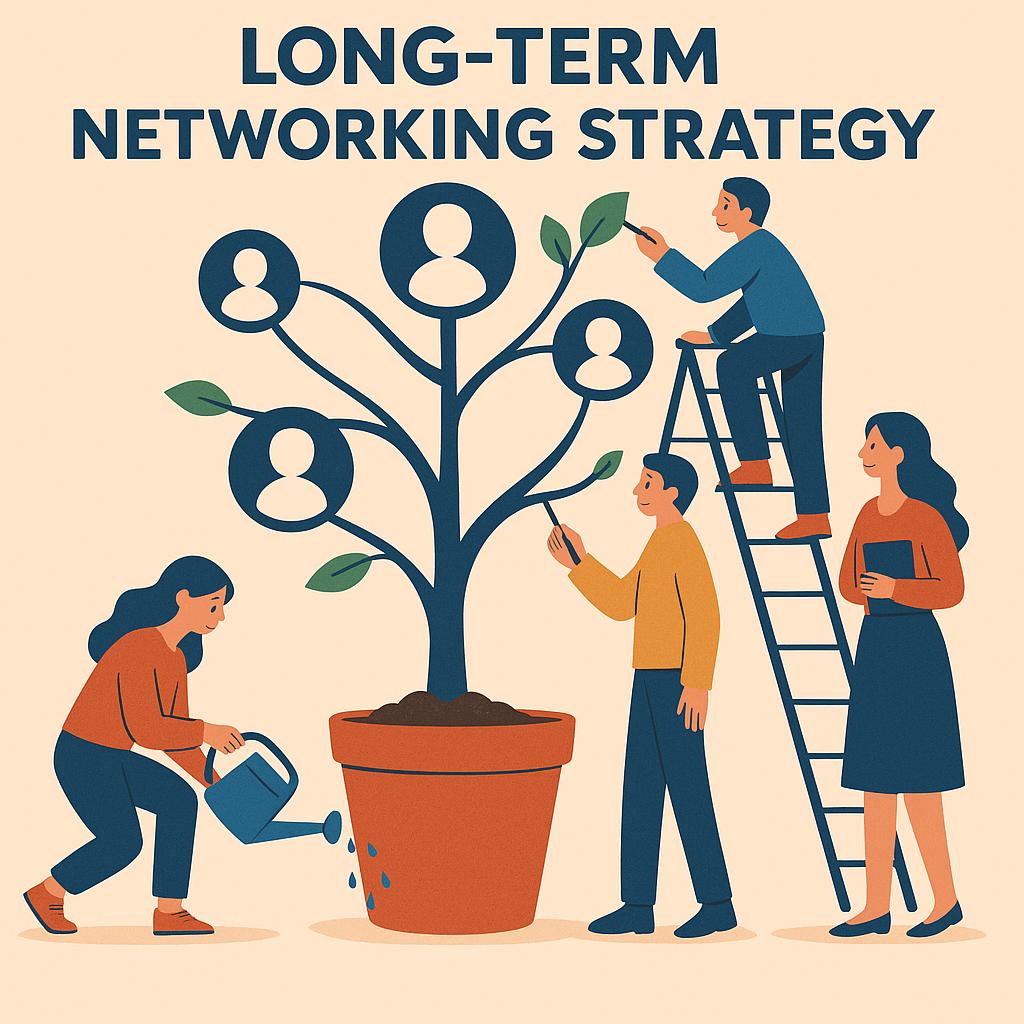Objective: This week, we are creating a sustainable plan for ongoing networking.

- Networking as a habit
- Nurturing relationships without being transactional
What does a sustainable network look like?
–> A sustainable network is not about quick wins or collecting LinkedIn connection, although that can be helpful or a starting place – it’s about building meaningful, long-term relationships that evolve and grow along with your own progress. As every other human connection, it needs time, attention, and care. You don’t need hundreds of connections, a circle of people you know, respect, and support – and who feel the same way about you.
How can I maintain connections without being transactional?
–> One of the biggest mistakes in networking is reaching out only when you want something. Real connections are built when you are present even when there is no clear benefit. Instead of thinking “What can I get from this person”, ask:
- “How can I support or learn from them?”
- “Is there a way to connect that doesn’t feel rehearsed but is natural?
Over time, this will make your network a space of trust and mutual care, not just opportunity.
Can networking be a habit?
The short answer is – yes, and it should be. Many people assume networking has to be a big or formal event, but it is often the small, consistent actions that matter the most. Like any other habit, it becomes second nature when you simplify it. Make it part of your routine and it will not feel like an effort.
What do I have to offer as a student?
You probably have much more to offer than you realize. Students often underestimate the value that they bring, thinking they have to be experienced or established to contribute. However, students can offer a fresh perspectives that challenges assumptions.
Activities:
- Set monthly goals: Write down manageable monthly goals like
- Attending events: research events of your that you can realistically attend
- People to follow up with: remind yourself to follow up with people, even though at first it might feel unnatural
Final words:
To finish, it is important to highlight that you don’t need to be an extrovert, or expert. You “simply” need to be consistent, kind, and intentional. Relationships grow when you show up, and don’t use them as means but ends.